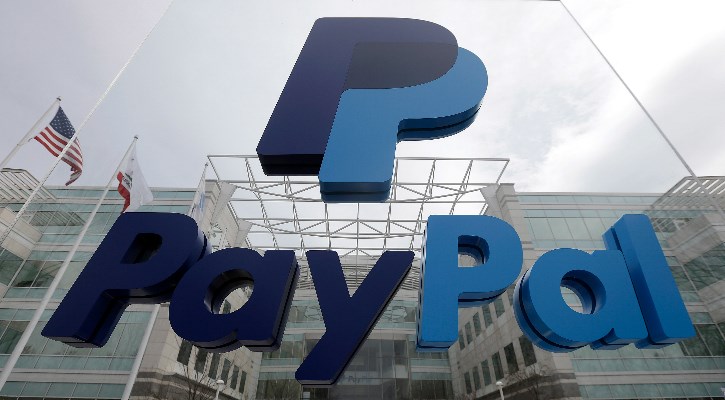
The buy now, pay later (BNPL) phenomenon has seen exponential growth over the past year. Younger shoppers have been lapping up the option, particularly during the holiday season, lured by the prospect of paying for big-ticket purchases in smaller interest-free installments.
The BNPL market is further being invigorated by acquisitions as established players snap up smaller fintech firms to exploit the burgeoning financial trend.
Retail giants like Apple (AAPL), Walmart (WMT) and Amazon (AMZN) have also jumped onto the buy now, pay later bandwagon by adding the option to their e-commerce checkouts, allowing consumers to spread payments over longer periods.
The following companies are the undisputed leaders in the BNPL space with strategic tie-ups with retail behemoths that boast a large consumer base and a global footprint. Investors may want to pay close attention to these BNPL names now so they can buy the dip later when a pullback creates an attractive discount.
Marqeta Inc Class A
California-based Marqeta (MQ) is an online card and payment processing company. It offers physical and virtual debit, credit and prepaid cards and counts Uber (UBER), DoorDash (DASH) and Instacart among its customers. Marqeta generates revenue primarily through processing and ATM fees for cards issued on its platform.
The firm’s payment platform is used by leading BPNL providers, including Afterpay, Affirm, Klarna, Sezzle and Zip Co. Marqeta claims its platform, which processed US$60 billion in 2020, has seen increased demand for buy now, pay later services.
“The unique capabilities and flexibility of Marqeta’s platform has allowed it to find success with fintech and technology companies, with buy now pay later firms and Square being the most notable,” says a Morningstar equity report.
The firm continues to benefit from the high organic growth its customer base provides. “The transition to digital payments will likely continue to be a major tailwind for the firm as digital card issuance and tokenization are among its strengths,” the report adds.
Marqeta’s customer base primarily comprises rapidly growing disruptive firms. “The company is heavily exposed to Square, buy now pay later firms, and food/delivery services that provide it with substantial growth just from its existing customer base,” says Morningstar equity analyst Michael Miller, who puts the stock’s fair value at US$16.80.
While the company’s explosive growth seen in 2020 may decelerate, Miller projects “Marqeta will continue to enjoy strong revenue growth, driven by its exposure to high growth firms like its buy now pay later customers and Square.”
He identifies the company's international expansion and involvement in credit card issuance as its long-term growth drivers.
PayPal Holdings Inc
Payment processor PayPal (PYPL) provides electronic payment solutions to merchants and consumers, with a focus on online transactions. The company had 377 million active accounts at the end of 2020. It also owns Xoom, an international money transfer business, and Venmo, a person-to-person payment platform.
PayPal entered the increasingly popular lending niche with the launch of its BNPL platform. Since then more than 9 million people have used its pay-later service, which saw a whopping 400% year-on-year jump in volumes this past Black Friday.
The company recently acquired Japanese BNPL service provider Paidy for US$2.5 billion to tap the world’s third-largest e-commerce market.
“In recent years, PayPal’s growth has remained turbocharged by the ongoing shift toward electronic payments and the rise of e-commerce, and the coronavirus further accelerated the shift toward e-commerce,” says a Morningstar equity report.
For the foreseeable future, “few payments companies are as well-positioned as PayPal,” says Morningstar equity analyst Brett Horn, who recently upped the stock’s fair value from US$147 to US$151.
While growing competitive pressures could chip away at PayPal’s position, Horn says the company can hold its own and projects 20% annual revenue growth rate for PayPal over the next 5 years.
“PayPal has a clear path to strong growth over the next few years,” he says, adding that the firm “can continue to generate solid growth over the long haul as it rides the secular shift toward electronic payments generally and e-commerce and mobile payments more specifically.”
Block Inc Class A
Square recently changed its name to Block (SQ), but its merchant business will retain the Square brand and Cash App, a person-to-person payment network, will retain its name. Block provides payment acquiring services to merchants, along with peripheral services. The company has operations in Canada, Japan, Australia, and the U.K., but only about 5% of revenue is generated outside the U.S.
Its founder Jack Dorsey, recently stepped down from his role as the CEO of Twitter to focus on leading Block.
The payments giant waded into the pay-later market with the proposed acquisition of Australian BNPL pioneer Afterpay in a US$29 billion deal. Block plans to embed Afterpay into its existing Seller and Cash App business units which will enable even the smallest of merchants to offer BNPL at checkout.
Square said in a statement the BNPL concept represents an attractive opportunity to capitalize on a shift in “consumer preferences away from traditional credit, especially among younger consumers” as well as growing demand from merchants for new ways to grow their sales.
“Strategically, the all-stock deal to buy Afterpay looks like another move to push the company’s business model closer to that of PayPal and strengthen the bonds between its Cash App and Seller businesses to create a more fleshed-out two-sided platform,” says a Morningstar equity report.
While the company is yet to turn a profit, Square has seen dramatic growth over the years. “The company’s position in its niche is solidified and it is nearing the point where it can generate attractive returns,” notes Horn, who recently lifted the stock’s fair value from US$112 to US$115.
A Note on Klarna
While not a stock per se, Klarna's floatation is hotly-anticipated, and could occur next year. A highly-visible financial brand on UK websites, Klarna has advertised itself as much as a challenger bank as an e-commerce technology company. That said, its decision to list in the US deals a further blow to the UK government's hopes of creating a London fintech hub. Read more about potential UK IPOs here.




























